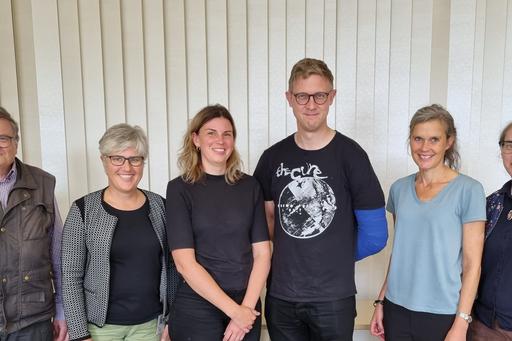Pneumococci and related infections globally and in Sweden
Short description
In the Biopneumo study, Susann Skovbjerg's research group investigates if patients with severe pneumococcal infections have defects in their immune responses. The team further determines if there are groups of patients in which further immunological investigations should be performed or if there are groups of patients in need of preventions to avoid severe pneumococcal infections. The group also characterizes the pneumococcal bacteria causing the severe infection and relates disease outcome to presence of viral coinfection. Research in the Democratic Republic of Congo focus on factors driving inappropriate antibiotic consumption among children below five years of age.

In the Biopneumo study we investigate if patients with pneumococcal invasive disease, i.e. patients with bacteria infecting the blood stream or any other sterile compartment of the body, have defects in their immune responses. We further determine bacterial factors associated with the disease, if viral coinfection has any impact on disease outcome, and how pneumococcal bacteria modulate immune responses.
Adult patients with invasive pneumococcal disease are identified at microbiological laboratories in the Region Västra Götaland, and included while still in the hospital or soon after discharge. The patients are sampled during disease for assessment of immunoglobulin levels, and for analysis of polymorphisms in genes involved in immune responses. A sample is also taken for determination of viral coinfection. After two months the patients return and donate blood for assessments of phagocyte function, lymphocyte populations and immunoglobulins. Clinical data including risk factors, manifestations and outcome are collected. Virulence traits in the pneumococcal strains are determined by genome sequencing methods. In vitro experiments analyze microRNA and surface protein expression in monocytes stimulated by pneumococcal bacteria.
We expect to identify new risk groups in need of immunological investigations and/or preventions, such as vaccination or immunoglobulin substitution. We further expect to find many patients with undiscovered immune deficiencies or underlying conditions that need special care.
There is a high misuse of antibiotics in sub-Saharan Africa leading to high rates of antimicrobial resistance in bacteria causing common infections in the child population. In the Democratic Republic of Congo we qualitatively explore behavior patterns among mothers to young children, among antibiotic providers and among health care professionals in the primary health care level on the use of antibiotics in children. The project will guide implementations aiming to improve the rational use of antibiotics in DR Congo and hence reduce the level of antimicrobial resistance in the community.

Susann Skovbjerg
Principal Investigator
susann.skovbjerg@vgregion.se
Affiliation:
Department of Infectious Diseases,
Institute of Biomedicine
The Biopneumo study group:
Rune Andersson
Karin Bergman
Magnus Brink
Tor Härnqvist
Beatriz Piñeiro Iglesias
Johanna Karlsson
Anna Lundgren
Sofia Löfberg
Åsa Mellgren
Rickard Nordén
Ebba Samuelsson
Other group members:
Archippe Muhandule Birindwa
Matilda Emgård
Florida Muro
Rose Mwangi
Mulugeta Tamire